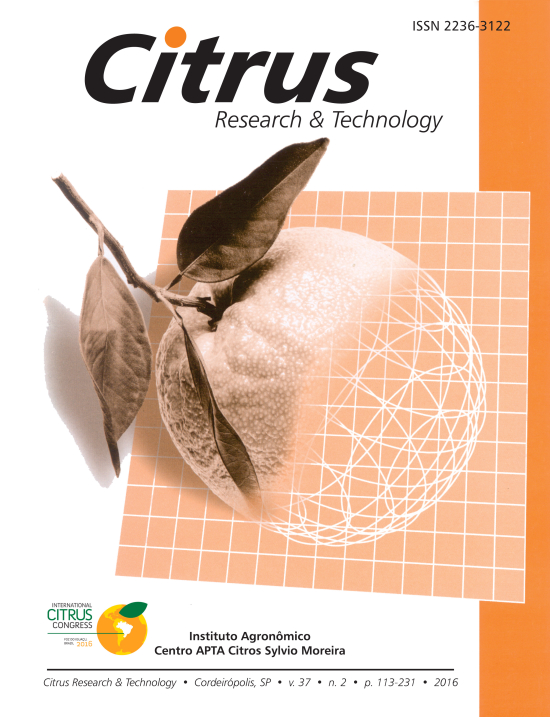ANÁLISE COMPARATIVA DE CUSTOS DE PRODUÇÃO DE LARANJA PARA INDÚSTRIA, ESTADO DE SÃO PAULO, SAFRA 2005/2006
COMPARATIVE ANALYSIS OF PRODUCTION COSTS OF INDUSTRY -ORIENTED SWEET ORANGE, STATE OF SÃO PAULO, BRAZIL, 2005/06 SEASON
ARTHUR A. GHILARDI
Resumo
O trabalho focaliza as diferenças e semelhanças existentes em estimativas de custo de produção de laranja para indústria, elaboradas para o Estado de São Paulo para a safra industrial 2005/06 e referentes a tecnologias adotadas por pequenos e médios produtores. Os dados básicos originaram-se de seis estimativas disponíveis, cujos itens de custos foram reclassificados em direção a uma estrutura única de custo, que reflete os custos operacionais, os de transação e os totais. Diversos conceitos teóricos, estruturas, classificações dos itens de custos e épocas de levantamentos de preços utilizam-se nessas seis estimativas, as quais também consideram diferentes densidades, produtividades e conduções da cultura. Os resultados demonstram que os custos por hectare elevam-se significativamente para as maiores densidades e produtividades, registrando-se patamares de custos nas estimativas por hectare. Entretanto, os custos por caixa são menores para as maiores densidades e produtividades, tendo-se, também, patamares de custos por caixa. Verifica-se que estimativas com custos de produção num mesmo patamar apresentam grandes diferenças nas importâncias absoluta e relativa de itens específicos do custo, e também que a participação de cada um dos itens de custo registra elevada variação conforme o conceito de custo adotado.
Palavras-chave
Abstract
This paper focuses the differences and similarities on estimates of production cost for industry-oriented sweet orange, elaborated for the State of São Paulo and for the 2005/06 season. The technologies considered are those used by small and medium growers. The basic data were originated from six available estimates, from whose the items of cost were reclassified in direction to only one structure of cost reflecting the operational, transaction and total costs. Several theoretical concepts, structures, classifications of items of cost and periods of surveying prices are used in these six estimates, which also consider different densities, productivities and culture treatments. The results demonstrate that the costs per hectare increase significantly for the highest densities and productivities, registering platforms of costs in the estimates per hectare. However, the costs per box are lowest for the highest densities and productivities, also showing platforms of costs per box. It is observed that estimates of production costs at the same platform show great differences in the absolute and relative importance of specific items of cost. Also, depending on the concept of cost that is used, the participation of each item on it shows high variation.

